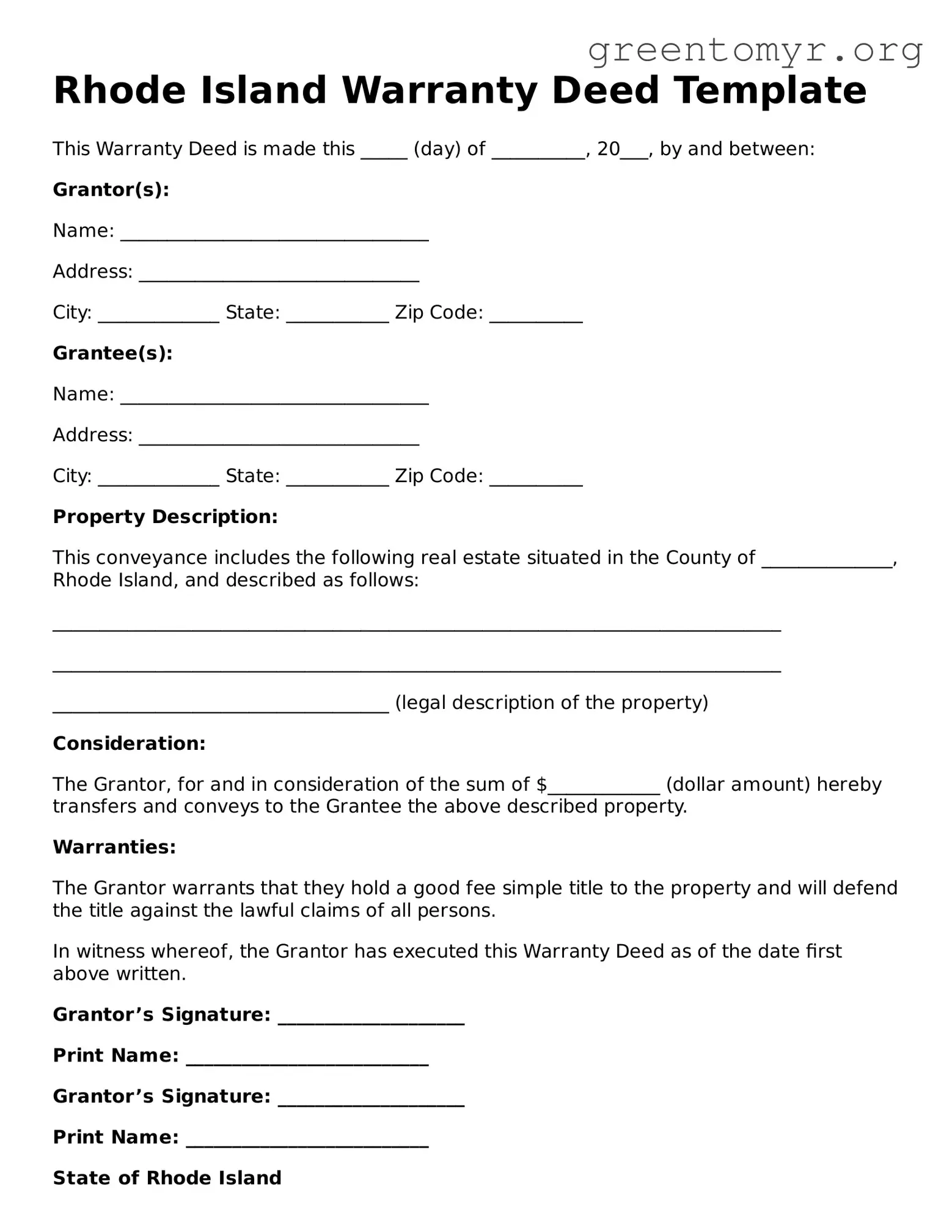Rhode Island Warranty Deed Template
This Warranty Deed is made this _____ (day) of __________, 20___, by and between:
Grantor(s):
Name: _________________________________
Address: ______________________________
City: _____________ State: ___________ Zip Code: __________
Grantee(s):
Name: _________________________________
Address: ______________________________
City: _____________ State: ___________ Zip Code: __________
Property Description:
This conveyance includes the following real estate situated in the County of ______________, Rhode Island, and described as follows:
______________________________________________________________________________
______________________________________________________________________________
____________________________________ (legal description of the property)
Consideration:
The Grantor, for and in consideration of the sum of $____________ (dollar amount) hereby transfers and conveys to the Grantee the above described property.
Warranties:
The Grantor warrants that they hold a good fee simple title to the property and will defend the title against the lawful claims of all persons.
In witness whereof, the Grantor has executed this Warranty Deed as of the date first above written.
Grantor’s Signature: ____________________
Print Name: __________________________
Grantor’s Signature: ____________________
Print Name: __________________________
State of Rhode Island
County of _______________
On this _____ day of __________, 20___, before me, a Notary Public, personally appeared ___________________________ and ___________________________, known to me (or satisfactorily proven) to be the person(s) whose name(s) are subscribed to the within instrument, and acknowledged that they executed the same for the purposes therein contained.
In witness whereof, I hereunto set my hand and official seal.
Notary Public Signature: ________________________
My Commission Expires: _______________
